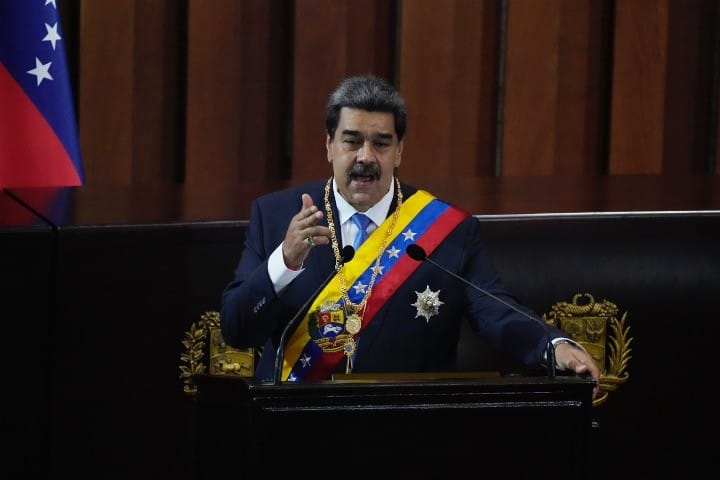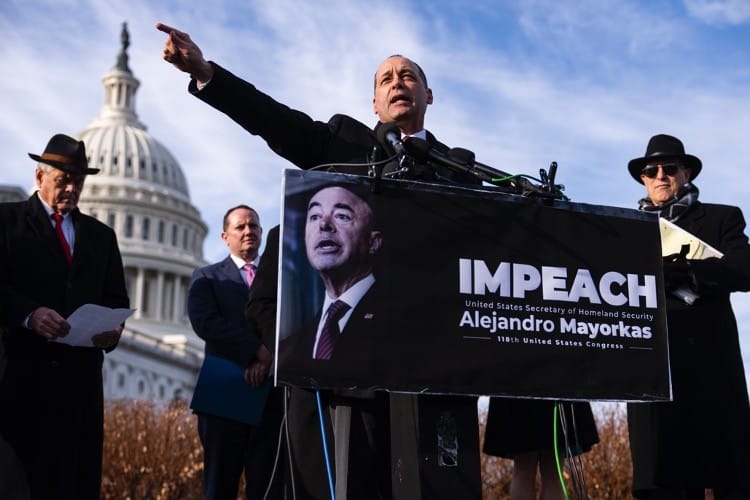Education Freedom is On the Move School choice is picking up steam nationwide – and 2023 promises to be a great year.

BY LARRY SAND
SEE: https://www.frontpagemag.com/education-freedom-is-on-the-move/;
Republished below in full unedited for informational, educational, & research purposes.
Somewhere, the late Milton Friedman is beaming. The godfather of school choice and all-around genius had a vision in 1955 to extricate the government from administering education by giving parents vouchers that they could use for specified educational services.
It took a while to get off the ground, but today Friedman’s plan is flying high. According to EdChoice (formerly the Friedman Foundation for Educational Choice), 32 states, Washington, D.C., and Puerto Rico have some form of private school choice law in place.
At the same time that parental freedom is advancing, the naysayers are having conniptions. In The New Republic, David Marques fumes about the just completed National School Choice Week, referring to it as “that annual right-wing P.R. campaign to defund public schools that pretends to really just care about the children.”
His fulmination is loaded with all the usual bogus tropes – that private schools are “unaccountable” and “unregulated,” and that the goal of National School Choice Week is to “gut public education, destroy teachers’ unions, and enrich unregulated private education companies.”
Not to be outdone, former teacher and uber-grinch Peter Greene wrote a blog post in which he summarizes the move to parental choice in his final paragraph. “It’s all about the three D’s—disrupt, defund, and dismantle. Call the voucher system whatever you would like, but it is about reducing education from a public good and shared societal responsibility to a simple consumer good.”
In Oklahoma, Duncan school superintendent Tom Deighan said supporters of taxpayer-funded school choice aim to “dismantle all public schools.”
The belly-achers also insist that not only will school choice kill the government-run variety, but they also claim that choice is racist and will lead to significant societal intolerance.
But study after study shows that the government monopolists are dead wrong. Researcher Greg Forster looked at 34 studies on the effects of school choice on government-run schools and found that in 32, school choice improves academic outcomes in public schools affected by the program, while one saw no visible difference, and just one found a negative impact.
Forster also reports that of 11 empirical studies, 8 found private schools in choice programs produced stronger tolerance and civic values than public schools, while three found no visible difference. Additionally, he asserts that ten empirical studies have examined private school choice programs on segregation, and nine found that the programs reduced it, while one found no visible difference. Not one showed that choice leads to racial discrimination. Also, concerning race, a recent poll shows that when given a fair description of school choice types, a great majority of minority parents are in favor of it.
The prophets of gloom also claim that rural areas would be devastated by school choice measures. But in fact, rural families benefit from school choice like everyone else. When parents are given a choice, new private education providers emerge to meet demand.
Florida is a good case in point. Ron Matus, Director of Policy and Public Affairs at Florida’s Step Up For Students, explains, “Rural families in Florida are getting the best of both worlds. The overwhelming majority still choose traditional public schools, which in many cases have ably helped anchor rural communities. (Sixteen of the 30 rural districts earned A or B grades from the state this year; the rest earned C’s.) At the same time, families who need something different are able to access it.”
Perhaps the best endorsement for the educational freedom of all comes from public school teachers. A survey released in 2016 by Education Next found that “no less than 20% of teachers with school-age children, but only 13% of non-teachers, have sent one or more of their children to private school.” And not surprisingly, 42% of teachers don’t send their kids to a traditional public school back vouchers, compared to only 23% of the teachers who send their children to traditional public schools.
These results are similar to a 2004 Fordham Institute study that looked at 50 American cities and found that 21.5% of urban school teachers send their kids to private schools, while 17.5% of non-teachers do. Digging a little deeper, we learn that the disparity is considerably greater for larger urban areas. In Philadelphia, 44% of public school teachers’ kids attend a private school, Chicago 39%, San Francisco-Oakland 34%, and in New York City, 33%.
Polls invariably show widespread support for school choice. A recent survey of roughly 2,000 registered voters conducted online found that 62% of respondents would be interested in such an option, some 30% very much so.
The new year bodes well for educational freedom. In Iowa, Gov. Kim Reynolds just signed the Students First Act, whereby parents can control the portion of education dollars the state appropriates, approximately $7,600 annually. The legislation sets some caps for the first two years but removes them in 2025-26, making the educational savings account (ESA) program available to anyone. (ESAs allow parents to receive a deposit of public funds into a government-authorized savings account with restricted, but multiple uses. Those funds can cover private school tuition and fees, online learning programs, private tutoring, community college costs, higher education expenses, and other approved customized learning services and materials.)
In Utah, Gov. Spencer Cox has just signed a law creating an ESA for all children in the state. Students are eligible to receive $8,000 per year for qualified education expenses, including private school tuition, therapies, tutors, and curriculum.
Additionally, just a month into the new year, ten states are gearing up to add choice programs or increase their existing ones. Idaho lawmakers are expected to introduce a bill to create a universal ESA in the state. In Florida, a Republican proposal would extend the state’s already extensive choice programs to any student in the state.
While educational freedom is typically a red-state phenomenon, this could change. Democratic Pennsylvania Attorney General Josh Shapiro was elected governor after campaigning hard for school choice. Also, Illinois Democrat J.D. Pritzker supported his state’s tax credit scholarship program during his campaign.
Do you go to the government-run supermarket near your home to feed your family? Of course not. You find a local, privately-run store with the food you want at the best price. Just imagine if the government forced you to buy food from that awful government market down the street that sold contaminated meat, overripe fruit, and moldy bread, and was staffed by incompetent store employees.
We have had universal grocery choices forever. It is now time to implement educational freedom for all.
* * *
Larry Sand, a former classroom teacher, is the president of the non-profit California Teachers Empowerment Network – a non-partisan, non-political group dedicated to providing teachers and the general public with reliable and balanced information about professional affiliations and positions on educational issues.



